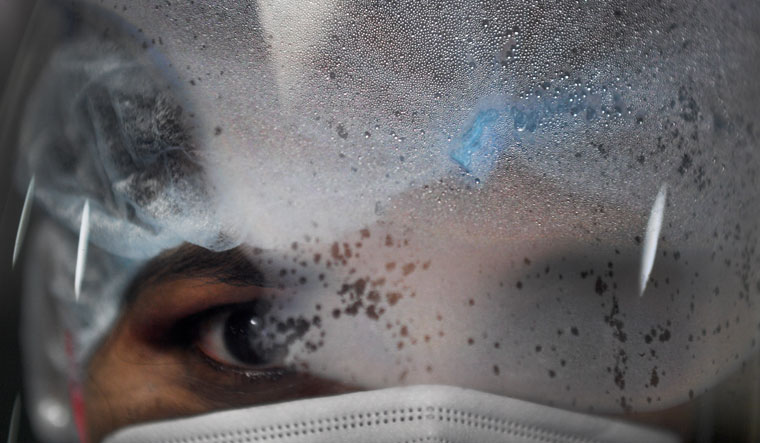Given the increased transmissibility of the UK variant strain, it is critical to identify people who have been infected with this strain to prevent its transmission in India, the Union government said on Saturday.
This was decided at a meeting of the National Task Force (NTF) for COVID-19 on Saturday. The meeting was attended by Dr. V.K. Paul, co-chairperson, NTF, and member, NITI Aayog and Dr. Balram Bhargava, secretary, department of health research and DG, ICMR.
“The variant strain has 14 non-synonymous (amino acid altering) mutations, six synonymous (non amino-acid altering), and three deletions. Eight mutations are present in the spike (S) gene which carries the binding site (Receptor Binding Domain) of the ACE2 receptors, which are the point of entry of the virus into the human respiratory cells,” the Union health ministry said.
“NTF concluded that there is no need to change the existing treatment protocol in view of mutations emerging in the strain,” the ministry said in a statement after the NTF meeting.
Despite the fact that one of the mutations or the dropout of the S gene, causes a “diagnostic blind spot”, NTF officials said since ICMR has always advocated use of two or more gene assays for testing SARS-CoV-2, it is “unlikely” to miss the infected cases using the current testing strategy. More than 50 samples of UK returnees are currently under sequencing at the designated laboratories.
The NTF recommended that in addition to the existing surveillance strategies, it is critical to conduct enhanced genomic surveillance for SARS-CoV-2 specially in incoming passengers from UK. Besides, it will also be critical to conduct genome sequencing in samples where there is dropout of the S gene in lab diagnosis, and cases that are proven to re-infections of SARS Cov2.
Routine genomic surveillance of SARS-CoV-2 from representative samples from all across the samples needs to be a continuous and well planned activity, the task force members conceded.
The government’s enhanced strategy to detect and contain the new variant was also discussed at the meeting. Besides testing all incoming passengers from the UK and tracing those who arrived in the country from the UK in recent past ( since November 23), the government is also planning to conduct whole genome sequencing for five per cent of the positive cases from all states/UTs.
also read
- 335 fresh Covid cases in India
- From polio to Covid-19: What we can learn from polio eradication for pandemic response
- Sudha Murty praises Vivek Agnihotri's 'The Vaccine War'
- China won't require COVID-19 testing for incoming travellers starting Wednesday
- North Korea to allow its citizens abroad to return home, a sign of further easing of pandemic curbs
A genomic surveillance consortium, INSACOG, has been formed under the leadership of NCDC, New Delhi, for laboratory and epidemiological surveillance of circulating strains of SARS-CoV-2 in India. Other laboratories in the consortium are: National Centre for Disease Control, Delhi, CSIR-Institute of Genomics and Integrative Biology, Delhi, CSIR- Centre for Cellular and Molecular Biology, Hyderabad, DBT- Institute of Life Sciences, Bhubaneshwar, DBT-National Institute of Biomedical Genomics, Kalyani, DBT-InStem-National Centre for Biological Sciences, Bengaluru, National Institute of Mental Health & Neurosciences (NIMHANS), Bengaluru and ICMR-National Institute of Virology, Pune.
It is proposed to continue enhanced genomic surveillance for early detection and containment of the UK variant SARS-CoV-2 strains. “However, it is important to understand that like all other RNA viruses, SARS-CoV-2 will continue to mutate,” the health ministry said.
The mutated virus can also be contained by measures like social distancing, hand hygiene, wearing masks and also by an effective vaccine, as and when available.







